Ian Melin-Jones
Paper Formulation Technology is a Key Driver for Sustainable Packaging
As interest groups raise awareness about plastic waste, governments around the world are starting to ban various types of plastics, especially single-use packaging items. We all know the reasons behind this push: Plastic waste is filling our landfills and waterways and breaks down very slowly in the environment.
Ultimately, the impact will not be confined to items such as grocery bags and straws. Analysts expect the movement to extend to plastic bottles, disposable cups, food-service packaging and ready-meal containers. In fact, several major consumer brands, as well as a significant number of European retailers, have moved to reduce or eliminate their use of plastics in packaging. And more will certainly follow.
Renewed Focus on Paper Materials
In this new paradigm, the pulp and paper industry has an opportunity to rise to the challenge of providing more environmentally friendly fiber-based solutions to replace all those plastic straws, bottles, disposable cups and food containers. But before that happens, it’s important to address the foundational aspects of packaging production that will enable these products to be replaced with environmentally friendly alternatives, especially in food applications.
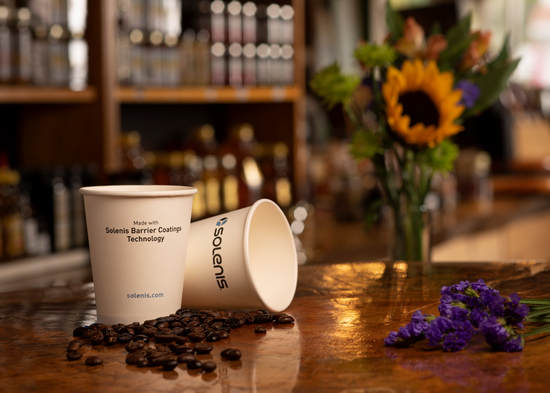 Made with Solenis Barrier Coatings technology
Made with Solenis Barrier Coatings technology
The Enabling Technologies
Almost anything, of course, is technically recyclable at a cost. But what makes a paper package most valuable in this new world is whether a material is repulpable. To this end, the goal is to replace paraffin wax or polyethylene (PE), fluorocarbon for grease barriers and the use of PE in cups and food-service applications. To achieve this goal, special formulations are required for paper packaging that act as a barrier to water, hot/cold liquids, greases and oils, moisture and water vapor—to name just a few. Suitable replacement formulations include barrier biowaxes used for different applications. Individual barrier products can also form a “system” consisting of one to three different coatings, each having different functions, with the final system design depending on the end producer’s requirements.
As the packaging industry moves toward fiber-based material for more sustainable solutions, there are some key issues to consider when it comes to paper material formulation.
Is it repulpable? Repulpability enables creation of a segregation system for post-consumer cups that can be repulped, where the fiber is recovered and reused to produce paper and paperboard products, perhaps even back into cups. The value of the fiber in these cups is very high, enough to make it economically feasible to develop the infrastructure needed to collect, segregate and recover these containers after use. Therefore, the barrier formulation should enable repulpability. This is not typically economically viable with PE-coated cups.
Is it compostable? The long-term objective, of course, is to recover the fiber. In the short term, if the material can be redirected to composting facilities – as opposed to landfills – this helps with consumer messaging and is a step forward for brand owners and the environment as well. As a result, fiber material with compostable barrier formulations have a significant advantage over PE products, which cannot be composted. However, this is still secondary to repulpability.
How is the formulation produced? This is a key point on sustainable sourcing, where many consumer brand owners have aspirational goals of using more than 50 percent sustainably sourced raw materials. Manufacturers of paper barrier coating formulations are seeking to minimize non-fossil fuel derived components and maximize renewably sourced raw materials. Some barrier solutions for example are 100% non-fossil based.
Is the barrier formulation functional? Barrier formulations must meet the functional requirements of the material being replaced. These requirements include resistance to oil, grease and water in applications like hamburger wrap, and resistance to staining for on-the-go coffee cups. Many paper-based packages are designed for consumer appeal and branding, and involve printing, sealing, gluing, flexibility and elasticity. As a result, paper barrier formulations must still allow the same packaging functionality while meeting sustainability goals.
Does the formulation facilitate manufacturing? One of the biggest advantages with some barrier coating formulations is that you can apply them using paper machine coaters, off-machine coaters or even flexo/reverse gravure printing presses. With some barrier coatings you can even convert the coated board into cups on existing cup-making machines designed to work with PE. As a result, very little capital expenditure is required to utilize these barrier systems; paper manufacturers can run them now if they have a coater.
The good news is that awareness of fiber as a functional packaging alternative continues to gain ground. For example, in the Next Gen Cup Challenge, a global consortium that includes major food industry players recently issued a challenge to “identify and commercialize existing and future solutions for the single-use, hot and cold fiber cup system.” Solutions could include cup lids, sleeves and straws, as well as reusable and alternative delivery systems. Nearly 500 entrepreneurs, inventors and scientists from more than 50 countries, including a team from Solenis, responded enthusiastically with ideas and potential solutions. Solenis was recognized as one of 12 final winners and work to scale its proposed solution is underway.
Working together, the paper industry can make a difference in reducing plastic waste in the environment and supporting the circular economy in 2019 and beyond.
Stora Enso plans consolidation of spruce production to one sawmill in Finland
Stora Enso plans to consolidate the Finnish spruce (whitewood) production to Varkaus sawmill. The plan includes a permanent closure of Kitee sawmill and production increase to Varkaus. The objective is to improve profitability and competitiveness by creating a fully integrated sawmill for spruce production in Varkaus, optimising the synergies from the existing LVL (Laminated Veneer Lumber), pulp and board mills.
The consolidation plan is part of Stora Enso’s profit protection programme of EUR 120 million targeting reductions in variable and fixed costs. The possible consolidation is subject to completion of the co-determination negotiations at Kitee sawmill which will start in August. The production at Kitee sawmill is planned to be stopped gradually until the end of 2019.
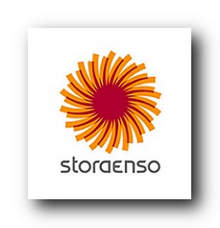 “The planned consolidation would enable us to optimise the full potential of Varkaus mill as an integrated mill, delivering a variety of value added wood products such as further processed sawn wood and LVL. This would provide us possibilities for improved product mix, stronger R&D and innovation as well as opportunities for efficient and automatised production. In Varkaus we also see strong synergies with Stora Enso’s pulp and board mills when it comes to shared raw material, logistics, infrastructure and energy usage. This consolidation would further enhance Stora Enso’s position as a global provider of high quality wood products and innovative wood-based solutions”, says Jari Suominen, Head of Stora Enso’s Wood Products division.
“The planned consolidation would enable us to optimise the full potential of Varkaus mill as an integrated mill, delivering a variety of value added wood products such as further processed sawn wood and LVL. This would provide us possibilities for improved product mix, stronger R&D and innovation as well as opportunities for efficient and automatised production. In Varkaus we also see strong synergies with Stora Enso’s pulp and board mills when it comes to shared raw material, logistics, infrastructure and energy usage. This consolidation would further enhance Stora Enso’s position as a global provider of high quality wood products and innovative wood-based solutions”, says Jari Suominen, Head of Stora Enso’s Wood Products division.
At Kitee sawmill the planned closure would result in a reduction of maximum 85 FTEs (full-time equivalents). Varkaus sawmill and LVL mill currently employ a total of 105 people. An increased production in Varkaus would require an additional 20 FTEs. Decisions regarding the planned consolidation, closure and employee reduction will be taken after the co-determination negotiations have been concluded.
Stora Enso will record restructuring related costs and write-downs of EUR 11 million as an item affecting comparability (IAC) in the second quarter 2019 results. Approximately EUR 5 million of the provisions will have a cash impact.
The planned closure would not have a significant impact on Group sales or operational EBIT this year.
Part of the bioeconomy, Stora Enso is a leading global provider of renewable solutions in packaging, biomaterials, wooden constructions and paper. We believe that everything that is made from fossil-based materials today can be made from a tree tomorrow. Stora Enso has some 26 000 employees in over 30 countries. Our sales in 2018 were EUR 10.5 billion. Stora Enso shares are listed on Nasdaq Helsinki (STEAV, STERV) and Nasdaq Stockholm (STE A, STE R). In addition, the shares are traded in the USA as ADRs (SEOAY). storaenso.com
Valmet to supply automation system and measurements to Xuzhou Zhongxing Paper in China
Valmet will supply a Valmet DNA automation system and measurements to Xuzhou Zhongxing Paper Co., Ltd. in China. The system and consistency transmitters will be installed on the company's paper machine PM1, enabling the line to increase production efficiency and obtain better measurements and controls for improving the process.
The order is included in Valmet's orders received of the second quarter 2019. The delivery will take place in the fourth quarter of 2019.
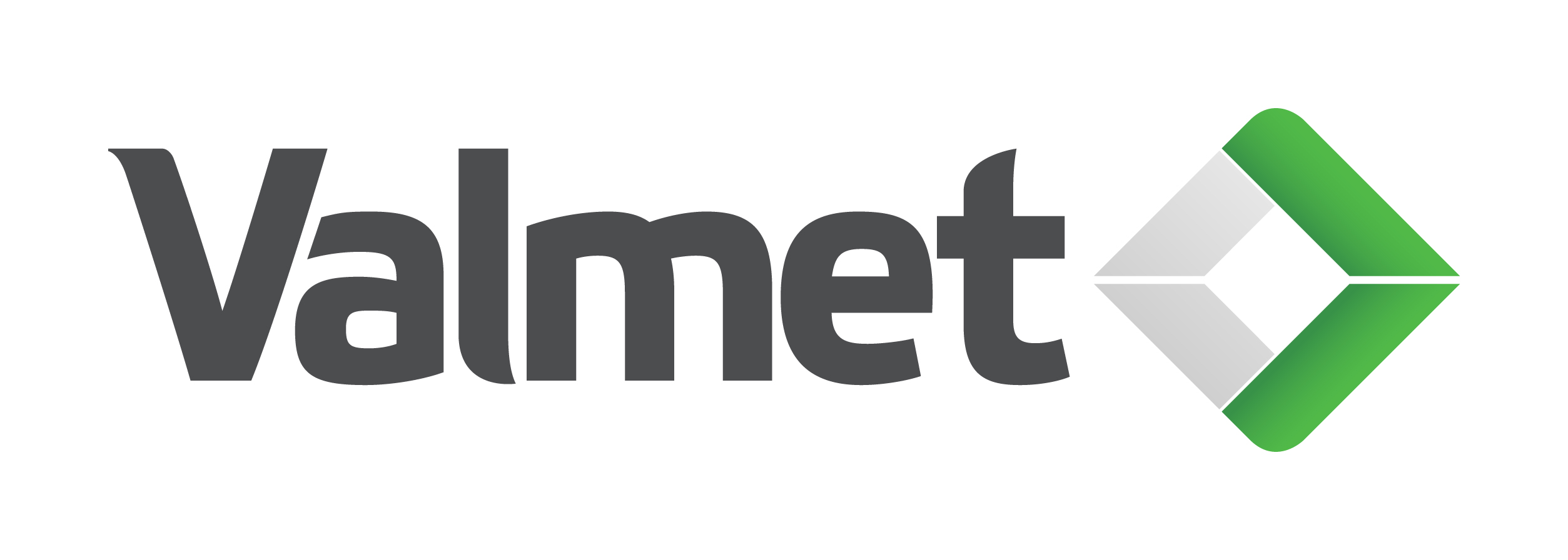 "We already have Valmet's quality management solution on our machine, and now with Valmet DNA and consistency measurements, we believe that the comprehensive automation solution will help us to improve machine efficiency and end-product quality," says Hongliang Wang, General Manager, Xuzhou Zhongxing Paper.
"We already have Valmet's quality management solution on our machine, and now with Valmet DNA and consistency measurements, we believe that the comprehensive automation solution will help us to improve machine efficiency and end-product quality," says Hongliang Wang, General Manager, Xuzhou Zhongxing Paper.
"Valmet has an extensive range of automation and solutions. We listened to our customer and provided the solutions they needed. Combined with our process know-how, we are happy that we can help our customer to move their performance forward," states Liang Zhou, Sales Manager, China, Automation, Valmet.
Information about Valmet's delivery
Valmet's delivery consists of a Valmet DNA automation system and Consistency transmitters based on various measurement technologies. Valmet's comprehensive and scalable automation solution is geared toward optimum productivity, efficiency and product quality.
Information about the customer Xuzhou Zhongxing Paper
Xuzhou Zhongxing Paper Co., Ltd. is one of the subsidiaries of Jianping Group, and mainly manufactures corrugated paper and whiteboard paper. Its annual production capacity is around 500,000 tons per year.
Valmet is the leading global developer and supplier of process technologies, automation and services for the pulp, paper and energy industries. We aim to become the global champion in serving our customers
Valmet's strong technology offering includes pulp mills, tissue, board and paper production lines, as well as power plants for bioenergy production. Our advanced services and automation solutions improve the reliability and performance of our customers' processes and enhance the effective utilization of raw materials and energy.
Valmet's net sales in 2018 were approximately EUR 3.3 billion. Our more than 13,000 professionals around the world work close to our customers and are committed to moving our customers' performance forward - every day. Valmet's head office is in Espoo, Finland and its shares are listed on the Nasdaq Helsinki.
Read more www.valmet.com
For further information, please contact:
Liang Zhou, Sales Manager, China, Automation, Valmet, tel. +86 21 3997 5000
West Linn Paper Mill Site to Re-open as Willamette Falls Paper Company
Willamette Falls Paper Company, Inc., a subsidiary of Columbia Ventures Corporation in Vancouver, Washington, announces the purchase of the paper-making assets associated with the mill located in West Linn, Oregon and has entered into a five-year lease with renewal options for the related real estate and buildings.
The new operation owns three paper machines, capable of making coated and uncoated grades with the potential capacity of 260,000 tons. Willamette Falls Paper Company plans a near-term startup of at least one paper machine, returning it as the only coated freesheet producer on the West Coast. Initially, the mill will employ about 85 people, which will increase as they bring up one or two of the remaining paper machines.
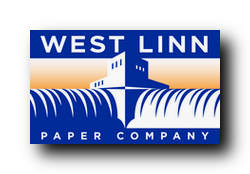 While the mill’s initial focus will be on traditional paper products, the long-term focus on sustainable paper-making will be its key to success. Willamette Falls Paper looks to integrate the use of non-traditional fiber sources such as pulp from wheat straw, agricultural waste and the new farm crop of hemp into the process. In addition to making paper from sustainable fiber, the mill also plans to work with local waste management companies to help find solutions to improve the recycling rate in the region. Recent export restrictions on paper waste have made paper disposal a problem. The mill looks to address the need for better recycling options.
While the mill’s initial focus will be on traditional paper products, the long-term focus on sustainable paper-making will be its key to success. Willamette Falls Paper looks to integrate the use of non-traditional fiber sources such as pulp from wheat straw, agricultural waste and the new farm crop of hemp into the process. In addition to making paper from sustainable fiber, the mill also plans to work with local waste management companies to help find solutions to improve the recycling rate in the region. Recent export restrictions on paper waste have made paper disposal a problem. The mill looks to address the need for better recycling options.
“We look forward to working with former customers to produce the quality products that they need,” states Brian Konen, President of Willamette Falls Paper Company. “Paper has been a part of the West Linn community for 130 years, and I am confident there are many more years of production ahead of us. Our previous employees were shocked and disappointed when the mill shut down 20 months ago, and it has been a goal of mine to find a new owner and restart the plant. Many highly skilled and experienced employees want to return to work in West Linn, and we are excited to welcome them back.”
Ken Peterson, CEO of Columbia Ventures Corporation says, “I am very optimistic because we were able to quickly develop a business plan to justify acquiring and reopening the paper mill. I am thankful to the various parties, including Portland General Electric, for working quickly and cooperatively to make it happen. The mill’s success means a reliable source for U.S. paper production to displace foreign paper imports. As we re-establish the business, we also intend to look for other ways to contribute to the economic life of the community outside of just pure paper-making.”
COLUMBIA VENTURES CORPORATION (CVC) is a private equity diversified holding company. Notably, CVC is the majority owner of Northwest Straw Pulp LLC which is in the final stages of constructing a first-of-its-kind pulp mill near Starbuck, Washington, to manufacture high-quality pulp fiber from wheat straw. At full production, it expects to annually produce 140,000 tons of pulp that will be able to directly substitute for hardwood pulp in terms of specifications and quality.
WILLAMETTE FALLS PAPER COMPANY, INC. is a newly formed company which owns and operates the machinery and equipment at the paper mill in West Linn, Oregon. The company is a non-integrated mill, capable of making coated and uncoated grades with an annual capacity of 260,000 tons. The Willamette Falls Paper Company looks to be an innovative leader in environmental paper production
SEK 8.8 million to research projects
The Södra Research Foundation has decided to grant an additional SEK 8.8 million to 12 research projects linked to forestry and the forest industry.
The funding was awarded to projects including process development in the pulp industry, recycling textiles and controlling pulpwood flows.
 “The linear life cycle for textiles needs to become circular, but the lack of recycling technologies is a major problem. One of the projects that has received funding will further develop a process to recycle mixed textiles that is compatible with today’s Swedish forest industry, which will be of interest to both our industry and the textile industry,” said Catrin Gustavsson, Senior Vice President Innovation and New Business at Södra.
“The linear life cycle for textiles needs to become circular, but the lack of recycling technologies is a major problem. One of the projects that has received funding will further develop a process to recycle mixed textiles that is compatible with today’s Swedish forest industry, which will be of interest to both our industry and the textile industry,” said Catrin Gustavsson, Senior Vice President Innovation and New Business at Södra.
Several forest-related projects were awarded funding, for example studying genetic gains, Douglas fir, damage to pine and better swarming forecasts for spruce bark beetles.
“There is a desire to increase the share of pine in young forests, not least given climate change. However, we can see increasing problems with disturbance of growth in regeneration stands of pine, which is causing concern about the initiative. The Foundation’s funding for a research project that aims to clarify the cause-effect relationship will hopefully guide us in how we can address these problems,” said Göran Örlander, Forestry Strategist and Chairman of the Research Foundation.
In conjunction with this autumn’s call for proposals, research into the “efficient utilisation of resources” in the forest industry is particularly welcomed. The call for proposals concerns both core forest industry products and by-products.
“The efficient use of wood raw material, by-products from harvesting, energy, water and chemicals keeps costs down and improves profitability. At the same time, it also benefits society, businesses and individuals by minimising environmental and climate-change impacts,” said Göran Örlander.
Read more about the Södra Research Foundation.
For more information, please contact:
Göran Örlander, Chairman of the Södra Research Foundation and forestry strategist at Södra
E-mail: This email address is being protected from spambots. You need JavaScript enabled to view it.
Catrin Gustavsson, Board member of the Södra Research Foundation and Senior Vice President Innovation and New Business at Södra.
E-mail: This email address is being protected from spambots. You need JavaScript enabled to view it.
Founded in 1938, Södra is Sweden’s largest forest-owner association, with nearly 52,000 forest owners as its members. We conduct modern and responsible forestry, and operate state-of-the-art mills in which we process our raw material. In 2018, sales amounted to SEK 24 billion and employees totalled 3,100. Through value-generating relationships and a long-term approach, Södra shows the way for the next generation of forestry.
North American paper producer eases into the future with ABB digital solutions
Port Townsend Paper Company (PTPC) moves forward with ABB Ability™ Advanced Digital Services
PTPC, a North American producer of pulp and paper products, began an evolution path in April 2018 for its mill in Port Townsend, Washington, USA. The mill’s distributed control system (DCS), which was nearing the end of its lifecycle, started a phased evolution upgrade. As a result, the mill will be able to continue operations and avoid a weeks-long shutdown while ABB performs services and upgrades during planned downtime.
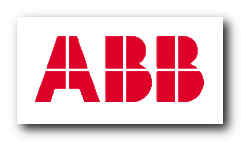 As part of the agreement, ABB migrated the mill’s existing Human Machine Interface (HMI) to ABB Ability™ System 800xA. As the industry’s leading control system, System 800xA also serves as an integrated electrical control system, a safety system and a collaboration enabler with the capacity to improve engineering efficiency, asset utilization and operator performance.
As part of the agreement, ABB migrated the mill’s existing Human Machine Interface (HMI) to ABB Ability™ System 800xA. As the industry’s leading control system, System 800xA also serves as an integrated electrical control system, a safety system and a collaboration enabler with the capacity to improve engineering efficiency, asset utilization and operator performance.
The mill also added OPT800 Cook/B, which is part of the ABB AbilityTM Advanced Process Control offering for pulp mills. OPT800 Cook/B is the latest version of the Advanced Batch Digester Management System that sequences and schedules PTPC’s batch digesters to process wood chips into pulp more efficiently, helping to increase production. PTPC will also benefit from minimized kappa variation and steam leveling, which will result in reduced chemical and steam usage.
The mill also receives ABB Pulp and Paper Care as part of the agreement. This is a modular service agreement framework designed to cut complexity, control cost, and maximize capital for ABB customers. ABB Pulp and Paper Care can address customer needs such as:
- Rapid Response guarantees fast and flexible service response to maximize equipment availability. Services include spare parts management programs, 24/7 technical support, and remote support services.
- Lifecycle Management provides powerful tools and ABB knowledge base to optimize and extend equipment life through use of ABB Automation Sentinel subscription.
- Performance Improvement increases productivity through usability and efficiency optimization of equipment and processes. Services provided can include Site Services, Resident Service Engineering, and System 800xA Performance Services.
Port Townsend Paper Corporation (PTPC) produces kraft pulp, paper, containerboard, and specialty products by blending virgin and recycled fibers at its mill headquarters in Port Townsend, Washington, USA. Along with its sister corrugated packaging facility, Crown Packaging in British Columbia, PTPC offers a variety of sustainable solutions to its customers. PTPC is recognized as a market-driven, entrepreneurial specialty kraft paper and containerboard producer that consistently provides high quality products. Its mission is to maximize EBITDA while continuously upgrading manufacturing assets and improving employee capabilities.
ABB (ABBN: SIX Swiss Ex) is a pioneering technology leader with a comprehensive offering for digital industries. With a history of innovation spanning more than 130 years, ABB is today a leader in digital industries with four customer-focused, globally leading businesses: Electrification, Industrial Automation, Motion, and Robotics & Discrete Automation, supported by its common ABB Ability™ digital platform. ABB’s market leading Power Grids business will be divested to Hitachi in 2020. ABB operates in more than 100 countries with about 147,000 employees.
ANDRITZ receives long-term maintenance and service contract for Arauco’s MAPA project in Chile
International technology Group ANDRITZ has been chosen as the maintenance and service partner for Arauco’s MAPA project in Chile. The long-term ANDRITZ SYNERGY™ service agreement covers the entire mill, including all pre-engineering, commissioning, start-up and integral maintenance there as well as supply of spare and wear parts and after-sales service. The service agreement, which will start in September 2019 and run for more than nine years through to February 2029, will be managed locally by ANDRITZ Chile. It is the largest maintenance and service contract ANDRITZ has ever been awarded.
This order follows the announcement by ANDRITZ in October last year that it would be supplying major woodyard equipment, fiberline, white liquor plant and evaporation technologies and equipment for the MAPA project. The scope also includes a complete operator training system with an exact model of the plant areas to train the operators in customer-specific operating scenarios. Completion of the MAPA project will make the Chilean company the third largest supplier of eucalyptus pulp globally. The modernization and expansion project is due to start up in the first quarter of 2021 and will see the mill producing 2.1 million tons of pulp annually.
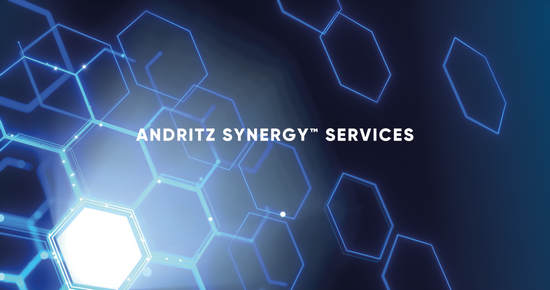 Photo: ANDRITZ
Photo: ANDRITZ
“This is an important order for ANDRITZ because it further strengthens our relationship with the Arauco group, which represents almost half of the Chilean pulp production market," says Luis Binotto, Senior Vice President and Division Manager at Sindus ANDRITZ.
ANDRITZ SYNERGY™ Services is a long-term service agreement for process equipment and a contract that has the flexibility to cover certain defined areas or the entire mill. The heart of the ANDRITZ SYNERGY™ Services agreement is process and equipment expertise in combination with customer experts to achieve the agreed targets.
ANDRITZ Pulp & Paper is a leading global supplier of complete plants, systems, equipment, and comprehensive services for the production and processing of all types of pulp, paper, board, and tissue. The technologies cover processing of logs, annual fibers, and waste paper; production of chemical pulp, mechanical pulp, and recycled fibers; recovery and reuse of chemicals; preparation of paper machine furnish; production of paper, board, and tissue; sizing, calendering and coating of paper; as well as treatment of reject materials and sludge. The service offering includes system and machine modernization, rebuilds, spare and wear parts, on-site and workshop services, optimization of process performance, maintenance and automation solutions, as well as machine relocation and second-hand equipment. Biomass, steam and recovery boilers for power production, gasification and flue gas cleaning plants, systems and plants for the production of nonwovens and absorbent hygiene products, dissolving pulp, and panelboard (MDF), as well as recycling and shredding solutions for various waste materials also form a part of this business area.
Sappi and PerfectPattern boost print efficiency with OctoSprint
Sappi and PerfectPattern signed a global strategic alliance in an effort to roll-out AI driven dynamic print planning and ganging technology to print businesses worldwide.
The partnership aims to enable offset and digital printers the opportunity to make significant savings in paper waste, plate consumption and production time. The SaaS-based offer utilises PerfectPattern´s sPrint One technology.
OctoBoost is Sappi´s internal startup which develops innovative digital solutions for the print industry, well in-line with Sappi´s commitment to improve printers´ business and ultimately make print more efficient, attractive and sustainable.
Perfect Pattern GmbH is a Munich based company which creates industrial Artificial Intelligence solutions, using Reinforcement Learning, intelligent prediction models and other AI technologies to control and optimize industrial production processes.
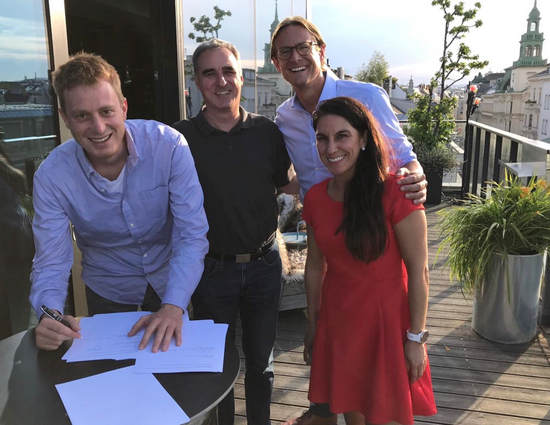
Picture from left to right:
- Robert Meissner, Perfect Pattern Founder and COO
- Fabian Rüchardt, Perfect Pattern CEO
- Flavio Froehli, Sappi Europe - Director Business Strategy & Development
- Anna Oñate, Sappi Europe - Intrapreneur, OctoBoost CEO & Co-founder
Sappi´s first digital product, OctoBoost, was launched in October 2018 in the DACH region and further rolled out to the Benelux and Nordic markets this year. Based on the e-commerce platform Magento and sPrint One it combines future-proof online print with powerful dynamic planning and ganging technology. It also provides insightful metrics through print intelligence dashboards.
For those printers who are already advanced in the online print journey and need no web-to-print solution, Sappi has launched OctoSprint: The technology will be distributed exclusively by Sappi & the OctoBoost team through a flexible SaaS model.
Significant savings, higher productivity
The technology is compatible with all digital and offset printing machinery. It has proven to reduce paper waste (by up to 50%), plate consumption (by up to 40%) and increase print capacity (by up to 22%), while automating pre-press and planning efforts. Average net savings are up to 5% of a print house´s revenue. Print businesses can find out concrete savings potentials through an OctoDiagnosis simulation on www.octoboost.com.
“Sappi and PerfectPattern´s enhanced partnership is a natural match”, says
Anna Oñate, CEO and Co-Founder of OctoBoost. “Both companies are passionate about print with the ambition of transforming the industry through further co-developing print automation and efficiency technologies.”
“Manufacturing companies in all industries need to optimize their competitiveness – and Artificial Intelligence can unlock significant potential for value creation in industrial production”, says Fabian Rüchardt, CEO of PerfectPattern. “We are very pleased to extend our partnership with Sappi OctoBoost to enable the printing industry to take advantage of the benefits of artificial intelligence for their business in an straightforward manner.”
About PerfectPattern
PerfectPattern was established in 2012 as a technology and software company based in Munich. The team creates software solutions that combine unique, powerful algorithms for process optimization with artificial intelligence. The solutions enable the fully automatic planning of virtually any production process in real time, making the “smart factory” a reality. The three key objectives are flexibility, punctuality and the reduction of production costs.
PerfectPattern has developed two revolutionary KI technologies, PYTHIA and CORTEX. PYTHIA is a platform product for pattern recognition, time series prediction and anomaly detection in real-time data streams. Through the innovative combination of methods from deep learning, stochastic and quantum field theory, it unsupervised finds even the most hidden patterns. CORTEX is a decision making technology that reaches decisions based on the global objective functions through reinforcement learning. CORTEX is the basis of sPrint One.
Further information is available at www.perfectpattern.de, where you will also find a growing glossary of artificial intelligence terms
About Sappi
Sappi is a leading global provider of sustainable woodfibre products and solutions, in the fields of Dissolving wood pulp, Printing papers, Packaging and speciality papers, Casting and release papers, Biomaterials and Bio-energy. As a company that relies on renewable natural resources, sustainability is at our core. Sappi European mills hold chain of custody certifications under the Forest Stewardship Council® (FSC®) and/or the Programme for the Endorsement of Forest Certification™ (PEFC™) systems. Our papers are produced in mills accredited with ISO 9001, ISO 14001, ISO 50 001 and OHSAS 18001 certification. We have EMAS registration at 8 of our 10 mills in Europe.
Sappi Europe SA is a division of Sappi Limited (JSE), headquartered in Johannesburg, South Africa, with 12,500 employees and 18 production facilities on three continents in nine countries, 37 sales offices globally, and customers in over 150 countries around the world.
Learn more about Sappi at www.sappi.com.
Valmet introduces ultra-high definition optics to fiber analysis
Utilizing more than 35 years of experience in laboratory and online fiber measurements, Valmet has launched a completely redesigned optics module. The ultra-high definition optics can measure more fibers with much higher resolution in order to expand application areas and improve measurement precision.
Since its launch in 2013, the Valmet Fiber Image Analyzer (Valmet FS5) has made precise standardized fiber morphology measurements possible without special training, sample preparation or laboratory facilities. Now, the new optics feature a wider measurement cell to allow improved shive particle measurement, a larger image area to measure more and longer fibers and an ultra-high definition camera providing faster fiber analysis and increased sharpness for better fibril and small particle detection. The new optical module is also available as an upgrade to existing Valmet FS5 analyzers.
"Our Research & Development team did it once again! The improvements in the optics allow our customers to see smaller particles, identify particles like parenchyma cells, and to be able to measure longer fibers or larger shives particles than before," says Tommi Niskanen, the Product Manager for Valmet FS5.
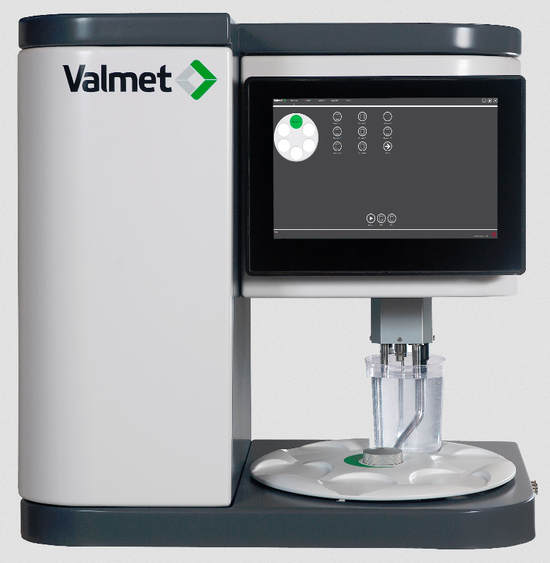 Valmet's redesigned optics module can measure more fibers with much higher resolution in order to expand application areas and improve measurement precision.
Valmet's redesigned optics module can measure more fibers with much higher resolution in order to expand application areas and improve measurement precision.
Valmet FS5 is intended for use in regular mill testing while also meeting the requirements for research laboratories. The results are ISO standard compliant and fully traceable and provide a better understanding of the paper making potential of the pulp, helping papermakers to better manage the process to get targeted end product quality.
The upkeeping requirements for Valmet FS5 are minimal and each unit is calibrated with an accredited calibration tool at Valmet's production center in Kajaani, Finland.
"Valmet FS5 platform has been validated by over one hundred happy customers globally. The possibilities with the new optics have created positive feedback from both our old and new customers," says Tuomo Kälkäjä, Director for Valmet's analyzers, measurements and performance solutions.
Ultra HD technology detects smaller particles
The Valmet Fiber Image Analyzer enables pulp and paper mills to unlock the true value potential of their raw material for optimum end product quality. With the new compact and user-friendly unit, customers can benefit from a wider range of available measurements combined with improved usability and reliability resulting in savings in terms of both time and resources.
The analyzer requires no special facilities other than water, drain and electricity. It is transportable for use on the machine floor as well as shift laboratory, when and where needed for fast and accurate pulp property analysis. Easily programmed for customized analysis and reporting, the FS5 is provided with basic measurements of fiber dimensions (length & width), fines, coarseness and curl, with two optional measurement packages that add blend ratio, external fibrillation, kink and cell wall thickness as well as neural network classification of vessel cells, shives, parenchyma cells, fiber entanglements, and more.
Read more: www.valmet.com/fs5
Valmet is the leading global developer and supplier of process technologies, automation and services for the pulp, paper and energy industries. We aim to become the global champion in serving our customers.
Valmet's strong technology offering includes pulp mills, tissue, board and paper production lines, as well as power plants for bioenergy production. Our advanced services and automation solutions improve the reliability and performance of our customers' processes and enhance the effective utilization of raw materials and energy.
Valmet's net sales in 2018 were approximately EUR 3.3 billion. Our more than 13,000 professionals around the world work close to our customers and are committed to moving our customers' performance forward - every day. Valmet's head office is in Espoo, Finland and its shares are listed on the Nasdaq Helsinki.
Read more www.valmet.com
For further information, please contact:
Tommi Niskanen, Product Manager, Valmet Fiber Image Analyzer, Automation Business Line, Valmet, tel. +358 400 758 915
Tuomo Kälkäjä, Director, analyzers, measurements and performance solutions, Automation Business Line, Valmet, tel. +358 50 317 0803
Update from Port Hawkesbury Paper
A fire in one of the wood chip silos on the Port Hawkesbury Paper (PHP) Mill site was discovered at approximately 7:20 PM (ADT) on Thursday, June 20th. The mill Emergency Response Team and the Louisdale Volunteer Fire Department responded to the initial call. The nature of the fire required additional resources, and firefighters from four local fire departments were brought in to assist.
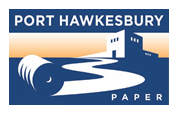 Two Port Hawkesbury Paper employees and two volunteer firefighters were taken to hospital for treatment. Both PHP employees have been released along with one of the firefighters. We have been told the second firefighter is expected to be released later today.
Two Port Hawkesbury Paper employees and two volunteer firefighters were taken to hospital for treatment. Both PHP employees have been released along with one of the firefighters. We have been told the second firefighter is expected to be released later today.
The fire is under control, and the PHP response team are making progress toward extinguishing it completely. External fire department resources are no longer on site.
Port Hawkesbury Paper is extremely grateful for all those who responded to this incident. As a result of their professional actions, the mill's production has not and will not be impacted.
The mill is cooperating with the Department of Labour and Advanced Education in their incident investigation. The cause of the fire remains under investigation by the mill.
For additional information, please contact: Mike Hartery
Port Hawkesbury Paper
Office: 902-625-6220
